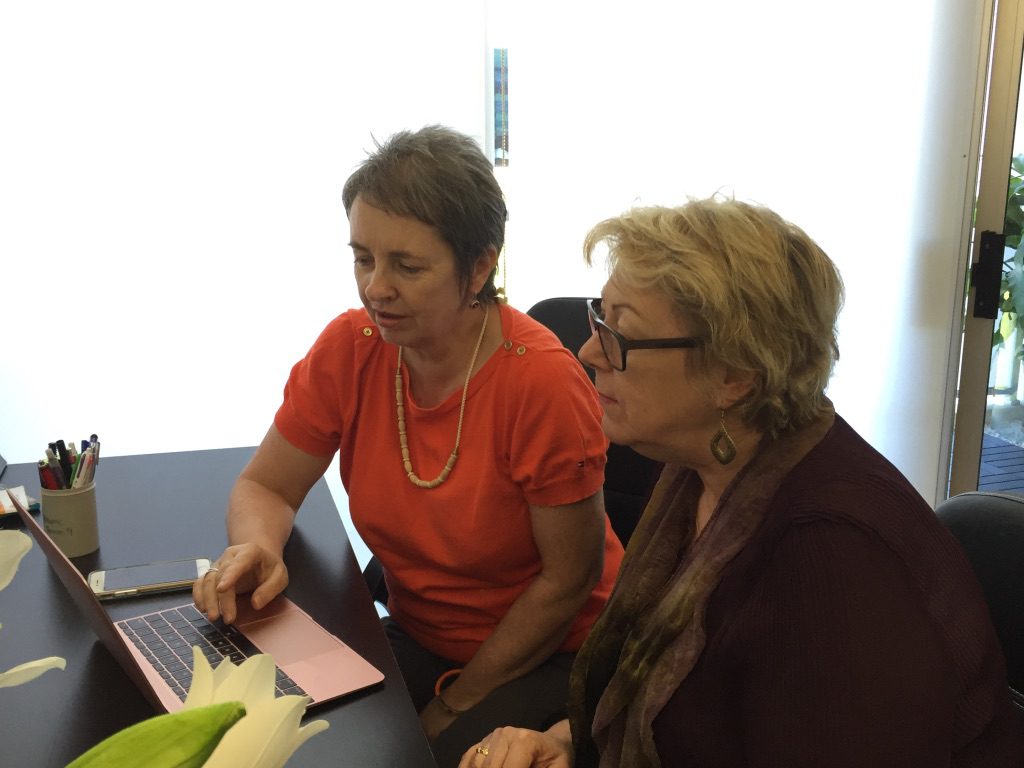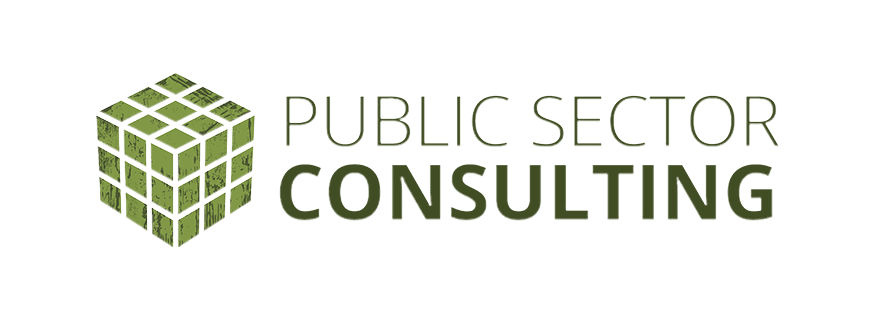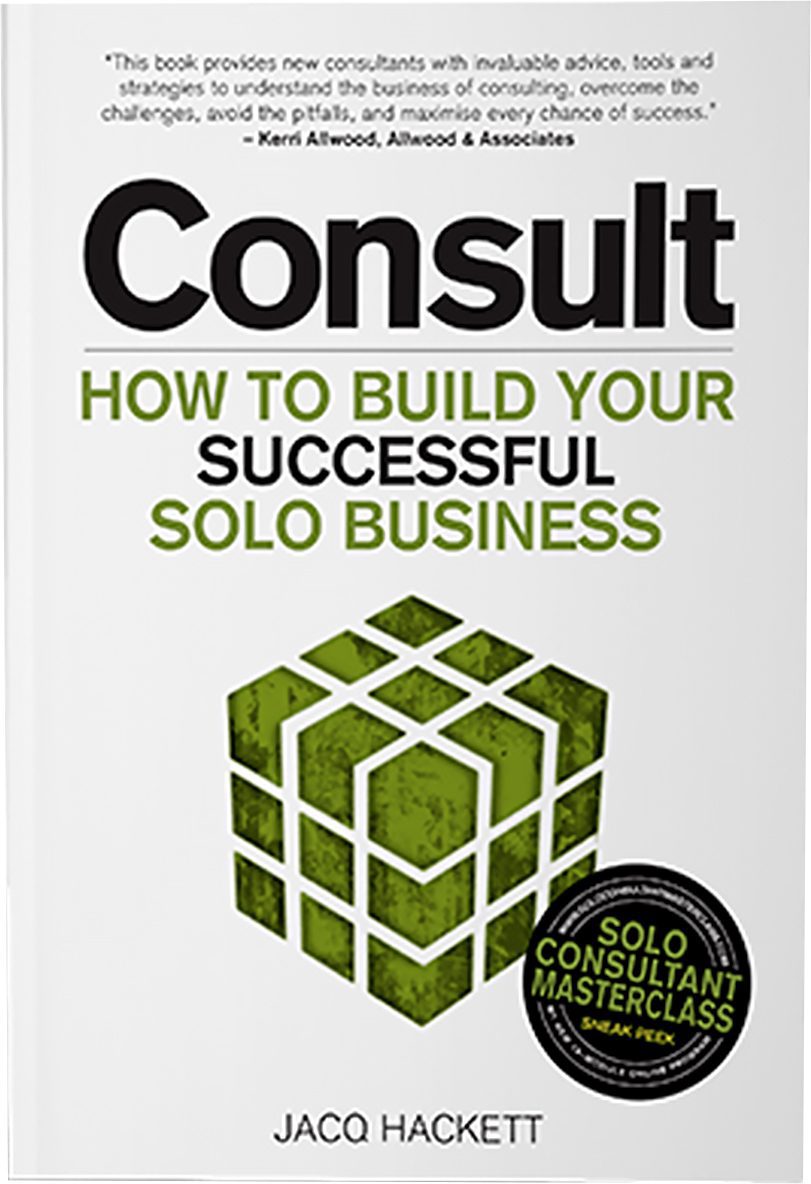Managing project scope is one of those tricky issues that tends to keep consultants up at night.
Here are five tips to manage your client’s expectations about project scope.
Are you struggling with scope creep?
If your small business is a consultancy practice, then you’ll very likely be working in a project-based environment – pitching for and conducting short-medium term projects. You need to really hone your project management skills if you’re going to make a success of it.
Managing project scope is one of those tricky issues that tends to keep consultants up at night. And a key aspect of this is managing your client’s expectations around project scope; it’s essentially about establishing and maintaining a shared understanding between you and your client about what you will do and what you will deliver.
Here are five tips to help you to manage those expectations.
Tip 1: Clarify expectations about scope in your consultancy proposal
The very first point at which you need to manage expectations about project scope is in your consultancy proposal. It is here that you map out what you propose to do, what you propose to deliver, and what time you propose to spend. Your proposal needs include a basic project plan that steps all of this out in sufficient detail, so the scope of what you’re proposing is clear to the prospective client.
Of course, the focus of your proposal is primarily on what you will do. But don’t forget to indicate anything major you assume the client will do. For example, if the project includes a stakeholder workshop and you assume the client will be responsible for the administration and costs associated with this [e.g. venue hire, invitations, catering] then spell it out to avoid any confusion later. It’s all about managing their expectations right from the get-go.
Tip 2: Document upfront any issues you think have the potential to result in scope creep
Often when I’m preparing a proposal I have some niggling concerns about issues I think have the potential to push the scope out once things get started. For example, what I’ve proposed to deliver relies on the client providing certain quantitative data in a readily accessible format, and I have a sneaking suspicion that it isn’t going to be as easy to get hold of as the client has indicated. Over the years I’ve learned not to ignore these concerns, and I encourage you to trust your instincts and take notice of them too. So if you think there are issues outside your control that may impact on your capacity to deliver everything as stated in your project plan, flag them upfront in your proposal.
I do this under a section titled simply ‘Issues related to scope’. It alerts the client right from the start that there may be scope issues ahead and having these issues documented paves the way for you to renegotiate if things do shift as you suspect they will.
Tip 3: Be prepared to renegotiate terms with the client when unexpected issues arise
Even if you have done a great job with the proposal and project plan and flagged any potential areas of scope creep upfront, things you didn’t anticipate can and do occur during a project which means some adjustments are needed to the project plan. This is normal, and there are often good reasons to change tack. But a common trap for consultants is to roll with the flow of scope changes as they arise without renegotiating the terms of the contract. In my early days as a consultant I didn’t have the confidence to renegotiate with the client when the scope shifted, but I soon learned that more often than not, this meant I ended up being out of pocket. So if this happens to you, then you need to bite the bullet and discuss the time and cost impacts of any changes with your client. Again, it’s all about managing their expectations about what you’ll do, what you’ll deliver and by when. And I’ve never had a client take issue with this – generally they are completely open to adjusting the cost for reasonable [and negotiated] changes in scope.
Tip 4: Manage expectations about timeframes
Managing timeframes and deadlines are part and parcel of consulting work. But all sorts of things that are outside of your control can get in the way of you delivering on time. In my experience, there are often unavoidable delays during a project, primarily due to issues at the client end. For example, it can take them longer than expected to bring a crucial meeting of stakeholders together, or there are delays in turning around feedback on your draft report. Whatever the reason, when you’re consulting to the public sector, you need to be flexible to go with these kinds of delays. But you still need to manage your client’s expectations. Even if the delay is due to something at their end, you need to keep your client informed about what these delays mean for the overall project timeframes and your ability to meet the agreed deadlines.
Clients are generally OK with shifts that are due to circumstances beyond your control. But don’t make assumptions – send an email update so that both you and the client have a record and the expectations are once again clear.
Tip 5: Manage expectations about feedback processes
Even after eighteen years of consulting, the processes of getting feedback on key documents from clients can still frustrate me because of the potential for scope creep concerning either my time, the project delivery timeframes– or both.
Here’s a typical example. In my proposal, I allowed for half a day to incorporate feedback on a draft report from the project steering group. But now that the draft report is ready, the steering group decides it should go to all the senior managers for feedback – another eight people. Of course, there is nothing wrong with this strategy, and I certainly need to be flexible to accommodate it. But to review and distil the additional feedback will involve more of my time than I quoted, and it will also blow out the project timeframes.
If you find yourself in this situation, let the client know you are happy to accommodate the changes, but make sure you adjust their expectations by advising them of the time and cost implications. If you just go along with it, you are the one who will be struggling with the deadlines and the one out of pocket.
There’s no doubt about it; project scope is a tricky thing to manage, especially if you’re new to consulting. Of course, your aim is always to remain within scope, but realistically this is not always possible. Be flexible and adjust your approach as needed, but always pay attention to managing your client’s expectations so that from their perspective, you are still delivering high value and excellent service.
Jacq Hackett provides expert consulting services to public health agencies. And as a veteran of over two decades of consulting, she now provides coaching and development for other consultants. She is passionate about supporting the next generation of public sector consultants to become very good at what they do.
Improving your proposal writing skills is your ticket to winning more consultancy projects and earning the income you aspire to. Access Jacq’s free video training series Writing Better Proposals here.

Consulting Proposals Online Workshop
Learn How To Write Compelling Consulting Proposals That Win More Public Sector Projects.



Fundamentals
Five video training sessions focusing on some of the essential building blocks of developing a successful public sector consultancy business.


Launchpad
Launchpad will prepare you to launch [or re-launch] your public sector consulting business by guiding you step by step through
- Defining your service offering
- Developing your capability statement
- Developing an initial marketing strategy


Masterclass Series
The Masterclass series distils over two decades of consulting experience into the most comprehensive online training program available, tailored specifically for public sector consultants.


Accelerator
The Accelerator is an 8-week group mentoring program designed to teach you everything you need to know to start or grow a profitable, sustainable public sector consulting business. In the Accelerator, we focus on skill development, business development, and mindset development.


Mentoring and Resources for Public Sector Consultants
Looking for 1:1 support? My individual mentoring sessions will provide you with specific, targeted support on any issue or challenge at any time.
Looking for resources? I have a number of free cheat sheets you can download.
Consult – Book Available Now
Jacq’s book Consult invites you into the often closed shop of the consulting world. You’ll learn what you need to know to get you started on the right track, as well as practical tips and simple steps for developing your consulting expertise over time.




